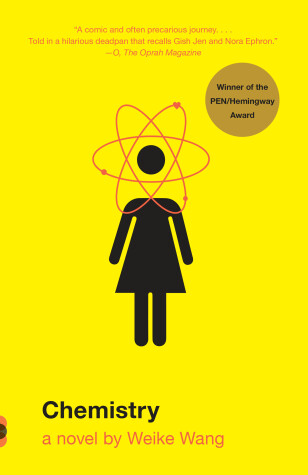Reviewed by gmcgregor on
There's not a lot of "plot" in this book, really. The protagonist is trying to decide what to do about her long-term relationship with a fellow chemist who has proposed to her but she's not sure she wants to marry, trying to figure out how to support herself without her graduate student stipend, being there for her best friend through pregnancy and early motherhood and marriage crises, and figuring out when and how and if to tell her Chinese immigrant parents that she's not in school anymore. It is this last matter that most preoccupies her, and much of the book is made up of her recollections of her childhood, of her parents' relationships with each other and with her, of the pressure she feels to succeed in the ways that they value in order to validate their sacrifices.
Stories like these illustrate the power of "own voices": an Asian-American woman telling the story of an Asian-American woman. A lot of non-Asians look to them as a so-called "model minority", hard workers somehow naturally gifted at math and science. Of course the reality behind that is more complicated, and Wang pulls back the curtain on what might seem like a neat little family of a scientist, a housewife, and their scientist daughter to show the internal workings that are just as messy as anyone's home life.
That being said, evaluating Chemistry on its novelistic merits reveals a book that is good but not great, and quite obviously a debut, though a promising one. Our nameless narrator is at times rather formless, and mostly reacts to the events around her rather than being proactive. She's very unsure of herself after breaking out a track that she found herself in more than chose, and while that's understandable, it makes her hard to really get enough of a feel for to connect with much. But Wang's writing is sure and emotionally true, and I enjoyed this book and would recommend it, especially to 20somethings that are wondering if they're on the right track.
Reading updates
- Started reading
- 21 March, 2017: Finished reading
- 21 March, 2017: Reviewed
